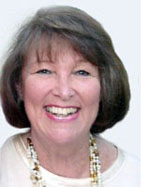By Cynthia Citron

SANTA MONICA, California — There must be at least half a dozen people in L.A. who have never seen Thornton Wilder’s classic play Our Town. If you are one of them, you couldn’t do better than the production that opened this week at the Broad Stage in Santa Monica.
Helmed by Helen Hunt as the Stage Manager, the Pulitzer Prize-winning play chronicles the daily life and concerns of the people of Grover’s Corners, New Hampshire, at the turn of the 20th century.
Fresh from its longest-ever run (644 performances at the Barrow Street Theater in New York), this production brings award-winning director David Cromer and players from the New York and Chicago casts to the reconfigured Broad Stage.
Cromer’s unique staging subtly integrates the audience into the production by arranging their seating in a horseshoe formation around the kitchen tables and chairs that represent the neighboring homes of Doc and Mrs. Gibbs and Editor and Mrs. Webb, played by Jeff Still and Lori Myers and Tim Curtis and Kati Brazda, respectively.
Further, a space between the first and second rows serves as streets of the town along which the children race on their way home from school, around which the milkman steers his horse and wagon every morning, and down which a weary Doc Gibbs arrives home after delivering twins to a Polish family on the other side of town.
Hunt, as the earnestly matter-of-fact Stage Manager, fills us in on the history of the town and points with pride to its landmarks: the City Hall, the various churches, the high school, and the range of purple mountains to the north. By the end of the first act you feel that you have spent a long, pleasant day gossiping and preparing string beans for canning with long-time friends.
The second act deals with Love and Marriage, which involves the innocent courtship and wedding of 17-year-old Emily Webb (Jennifer Grace) and 19-year-old George Gibb (James McMenamin). (Ironically, Helen Hunt played the role of Emily earlier in her acting career, long before her seven-year Emmy and Golden Globe-winning run in Mad About You.)
And finally, in the third act, we deal with Death and Eternity. It’s 12 years later, and the setting is the town cemetery at the top of a hill, where the dead sit motionless “waiting for the eternal part of them to come out.” Young Emily, who has died in childbirth, is joining her neighbors on the hill, but reluctantly. She is still drawn to life and wants to return to it.
When she learns that she can, she jumps at the chance, despite the warnings and admonitions of her dead companions. And so she returns to the morning of her 12th birthday. As she watches her family in their busy, distracted routines, she is dismayed that they appear to be unconscious of the wonder of being alive. She shouts to them to be aware of their lives, to revel in each moment, to look at one another.
Unable to make them hear her, she returns, disconsolate, to the cemetery to begin the process of detaching from life and all its petty concerns.
Our Town won a Pulitzer Prize for its author in 1938, but despite its overwhelming success it was banned by the Soviet Union in 1946 from being produced in the Russian sector of Berlin on the grounds that “the drama is too depressing and could inspire a German suicide wave.”
On the contrary, when I first read this play at the impressionable age of 15 it was an epiphany for me. I recognized it as a powerful treatise on what it’s like to be alive, as well as an urgent plea to be aware, to respect the time you’re given, to enjoy it, and to take full advantage of it. That message has been stamped on my memory ever since, and I can’t think of a better or more poignant lesson to carry through life.
Our Town will continue at the Broad Stage, Santa Monica Performing Arts Center, 1310 11th Street, Santa Monica, Tuesdays through Fridays at 7:30 p.m., Saturdays at 2 and 7:30, and Sundays at 2 through Feb. 12th. For tickets, call 310-434-3200 or visit www.TheBroadStage.com.
*
Citron is Los Angeles bureau chief for San Diego Jewish World. She may be contacted at cynthia.citron@sdjewishworld.com